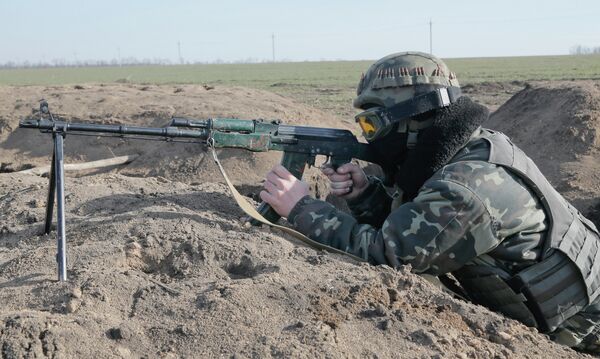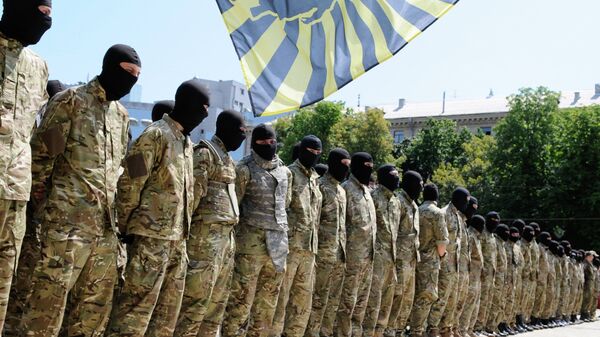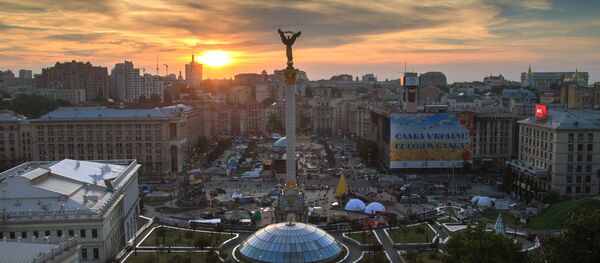The newspaper quoted Ukrainian Defense Minister Stepan Poltorak as saying recently that there are no volunteer units in the area of the anti-terrorist operation in eastern Ukraine. By saying so, Poltorak meant that all these units fighting for Kiev in the Donbass region have already become part of the Ukrainian army or the Ukrainian National Guard, according to the newspaper.

Formally, it may be true, but in fact, the government has had a tough time reigning in these volunteer battalions, the newspaper notes, referring to the latest developments in the village of Shirokino, in which a conflict erupted between local militias and pro-Ukrainian forces. The conflict was sparked by the Azov Battalion's refusal to leave the territory of Shirokino, located near the strategic port of Mariupol in eastern Ukraine.
"This incident made it clear where the power of Kiev over volunteer battalions ends. It is fraught with many dangers," the newspaper argues.
It further claims that despite the fact that the Azov and Donbass Battalions are already part of the National Guard, taking control of these units is a tricky task because their assessment of the military situation differs from that of Ukraine's top brass.
Such differences are just part of the problem, the newspaper says, singling out as examples the presence of neo-Nazis in the ranks of the Azov Battalion and looting charges against the Aidar Battalion, which is connected with the student protesters who participated in Euromaidan.
In light of this, Kiev should find compromises and restrict its control of volunteer battalions so that it can prevent them from becoming a serious threat to the unity of Ukraine, the German newspaper concludes.




